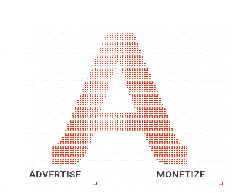Day 18: IFRS 9 – Financial Instruments (Part 2)
International Financial Reporting Standard (IFRS) 9 is a standard that deals with the recognition, measurement, and disclosure of financial instruments. In this post, we will continue our discussion of IFRS 9, focusing on financial liabilities and hedge accounting, as well as the expected credit loss model.
Financial Liabilities
IFRS 9 requires financial liabilities to be classified into two categories: financial liabilities at fair value through profit or loss (FVPL) and financial liabilities at amortized cost.
- FVPL: A financial liability is classified as FVPL if it is held for trading or if it is designated as such upon initial recognition. Financial liabilities at FVPL are measured at fair value, with any changes in fair value recognized in profit or loss.
- Amortized Cost: A financial liability is classified as amortized cost if it is not classified as FVPL. Financial liabilities at amortized cost are measured at their amortized cost, which is the initial recognition amount minus any impairment losses.
Hedge Accounting
IFRS 9 introduces a new approach to hedge accounting, which is designed to provide a more principles-based approach to accounting for hedging transactions. The hedge accounting requirements of IFRS 9 are designed to provide users of financial statements with a clear understanding of an entity’s hedging activities and the risks associated with them.
There are three types of hedge accounting under IFRS 9:
- Fair Value Hedge: A fair value hedge is a hedge of the exposure to changes in fair value of a recognized asset or liability or an unrecognized firm commitment that result from a particular risk.
- Cash Flow Hedge: A cash flow hedge is a hedge of the exposure to variability in cash flows that is attributable to a particular risk associated with a recognized asset or liability or a forecasted transaction.
- Net Investment Hedge: A net investment hedge is a hedge of the exposure to foreign exchange risk of a net investment in a foreign operation.
Expected Credit Loss Model
The expected credit loss (ECL) model is a new approach to impairment of financial assets under IFRS 9. The ECL model requires entities to recognize an impairment loss for the expected credit losses of a financial asset over its entire life, rather than just the incurred losses.
The ECL model is applied to all financial assets that are not classified as FVPL. The impairment loss is recognized in profit or loss, and it is measured as the difference between the asset’s carrying amount and its recoverable amount.
Disclosure Requirements
IFRS 9 requires entities to disclose information about their financial instruments, including their classification, measurement, and impairment. The disclosure requirements are designed to provide users of financial statements with a clear understanding of an entity’s financial instruments and the risks associated with them.
Transitioning to IFRS 9
The transition to IFRS 9 requires entities to reassess their financial assets and liabilities, and to apply the new classification and measurement requirements. The transition also requires entities to disclose information about their transition to IFRS 9, including the impact of the new standard on their financial statements.
Conclusion
IFRS 9 provides a comprehensive framework for the recognition, measurement, and disclosure of financial instruments. It introduces a new approach to classification and measurement of financial assets and liabilities, and it provides a more principles-based approach to accounting for financial instruments. The standard also introduces a new approach to impairment of financial assets, which is based on the concept of expected credit losses.
By following the requirements of IFRS 9, entities can provide users of financial statements with a clear and transparent picture of their financial instruments and the risks associated with them.
Keep your financial records accurate and up-to-date with our expert bookkeeping services. Our team of experienced accountants will help you manage your finances, prepare financial statements, and ensure compliance with regulatory requirements. Contact us at mtfco@onewebonehub.com to learn more about our bookkeeping services.













